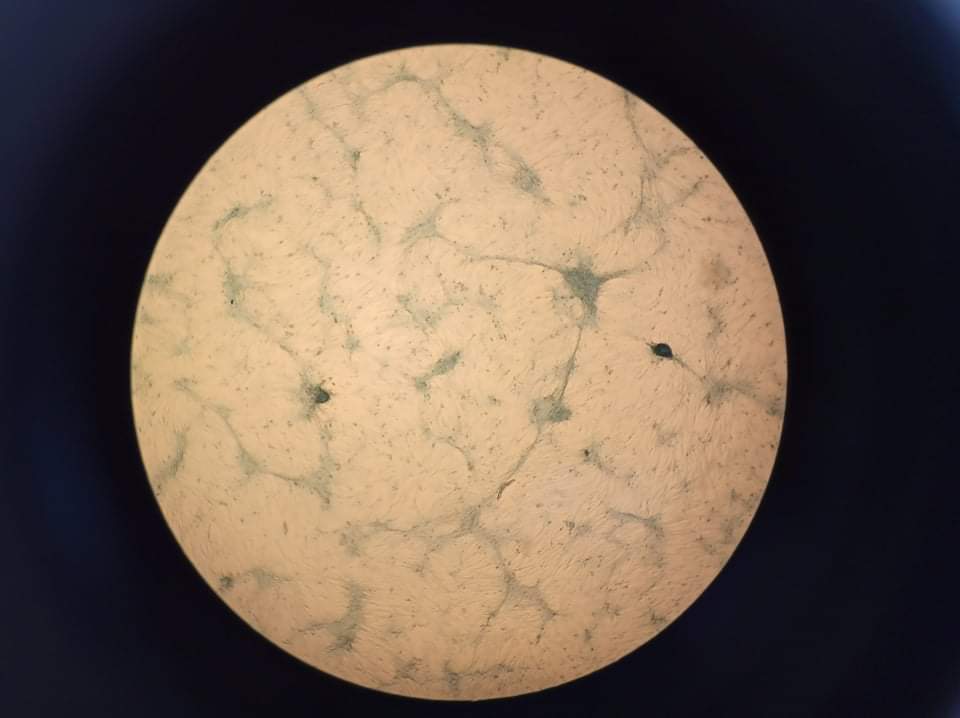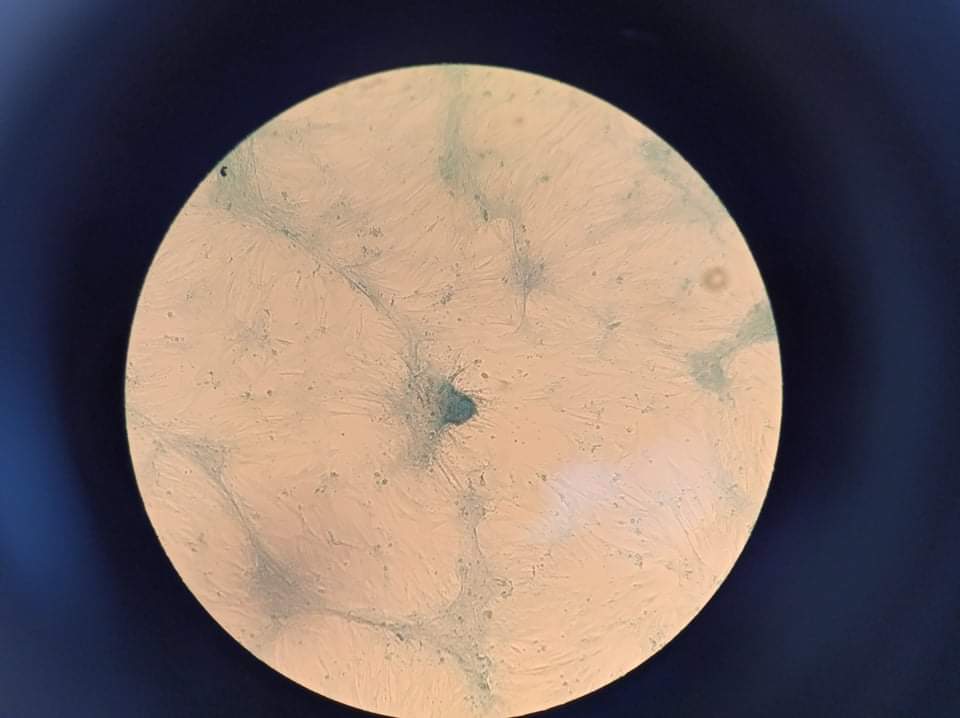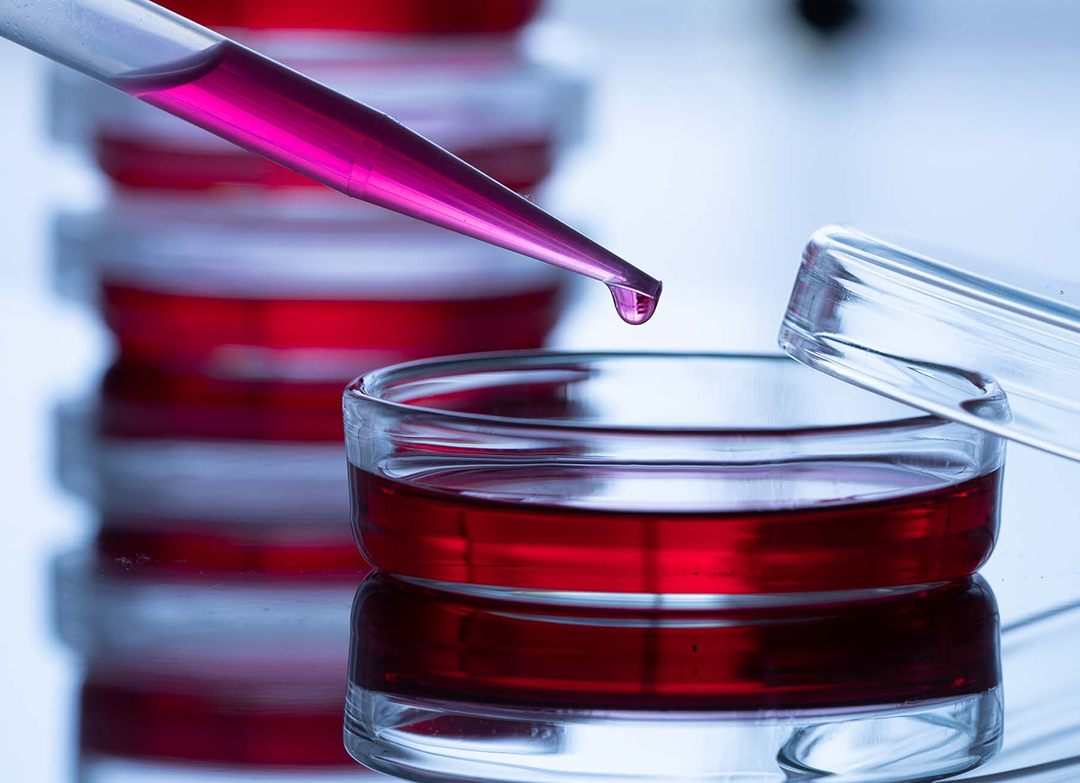
Our Technology
We are developing mesenchymal stem cell-based products for the treatment of osteoarthritis in animals that are safe to use, readily available and provide long-term benefits. Whilst our technology platform can be adapted to various species, our current focus is on developing a stem cell product to treat osteoarthritis in dogs. We use allogeneic mesenchymal stem cells, obtained from healthy donors in a scalable and ethical production model.
mesenchymal stem cells
Stem cells are unique in their ability to self-renew and differentiate into various cell types. Due to this stem cells can build new tissues in the body which is why they are of great interest to regenerative medicine and research.
Autologous vs allogeneic stem cells
Autologous stem cell treatments harvest stem cells from the individual subject, process and culture them to provide a suspension that can be re-injected back into the subject.
Allogeneic stem cell treatments involve using MSCs from multiple donors, combining and culturing them to them to prepare a high volume stem cell preparation that can be used to treat multiple recipient subjects.
Production Process
We are developing mesenchymal stem cell-based products for the treatment of osteoarthritis in animals that are safe to use, readily available and provide long-term relief from pain and inflammation. Whilst our technology platform can be adapted to various species, our current focus is on developing a stem-cell product to treat osteoarthritis in dogs. We use stem cells, obtained from healthy donors in a scalable and ethical production model.
mesenchymal stem cells
Stem cells are unique in their ability to self-renew and differentiate into various cell types. Stem cells can build new tissue in the body and thus are of great interest for regenerative medicine. Using specific factors and culture techniques scientists are able to direct differentiation of stem cells into specific cell types which can promote the healing and regeneration of damaged tissue.
Mesenchymal stem cells are present in the body throughout life and serve to repair damaged tissues. They are often obtained from bone marrow, umbilical cord, placental or fat tissue.
Once purified and expanded in a clean laboratory setting, they can be potentially used for treating a range of conditions, though many of these treatments are still experimental.
MSCs target inflammation and modulate the immune response locally; they also reduce cell death and prevent formation of scar tissue, positively affecting metabolism at the site of injection, as well as promoting regeneration of damaged tissue and formation of new blood vessels.
MSCs are the subject of active research for the treatment of a range of human diseases such as irritable bowel syndrome, myocardial infarction and wound healing in diabetes patients. They have also been found effective in the treatment of joint diseases such as osteoarthritis.
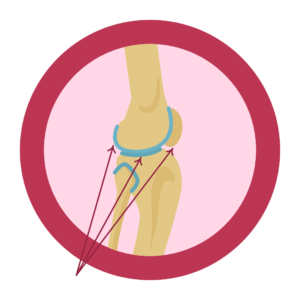
Autologous vs allogeneic stem cells
Most efforts to develop stem cell treatments use autologous stem cells that are isolated from the patient and re-injected into the damaged tissue. However, this method might not always provide a long term solution because of potential genetic factors contributing to the formation of weak cartilage. To overcome this, we use an allogeneic methodology in which MSCs are derived from orthopaedically healthy donors and injected into the joint of the patient, achieving a long-lasting symptom-free period or even full recovery. Using allogeneic MSCs is as safe as using autologous MSCs.

ADStem production technology
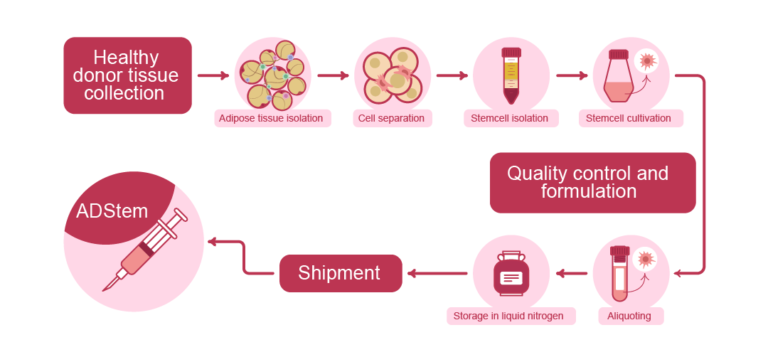
- Ethical sourcing of stem cells: we obtain MSCs from healthy animals with the consent from their owners during elective surgeries.
- Quality control: obtained tissue is then transported to our facility where it undergoes rigorous quality control to ensure that MSCs are free of pathogens and that they produce proteins necessary to promote joint regeneration.
- Our cells have been shown not to promote any immune response and are much safer to use.
- Ready-to-use: at the final stage of the production, MSCs are packaged into sterile vials that are easy to store, transport and to use by veterinarians.

